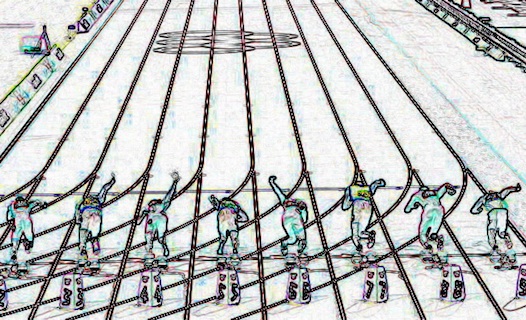By Kent Gammon
Op-Ed Contributor
The four gold medals earned by the Jamaican track and field team in the London Olympics 2012 shine as unequivocal testimony of the country’s prowess in track and field.
Sporting activities are an area in which the Jamaican people across all socioeconomic strata unite around their athletes.
The Jamaican people, by and large, have a deep love affair with running in and of itself — not only as a sporting activity but as a recreational activity, and they take to it with what seems a phenomenal natural advantage.
The world conquest of the 100 and 200 metres in this London 2012 Olympics and the last Bejing 2008 Olympics by the Honourable Usain Bolt has excited Jamaicans and non-Jamaicans alike globally on a level not seen recently by a world athlete. A good friend of mine in Germany summed it up superbly when he emailed me on Aug. 9, 2012, saying, “Today and tomorrow I am Jamaican…go Bolt!”
It is a moment in time like none other that the world admires the success of this small island as it triumphs over such world powers like the United States and Great Britain in a global arena.
Wanna run like Bolt?
There has not been a more opportune moment like now for Jamaica to capitalize on the superstardom of Bolt. It certainly adds lustre to his iconic image that Bolt loves the spotlight and has the charm to boot.
The Jamaican track and field coaches, Glen Mills of the Racers Club and Bruce James of the MVP Club, both based in Jamaica, and using the facilities in Jamaica to train the likes of Bolt and “the Beast” — not to forget Shelly-Ann Fraser-Pryce, have provided a reservoir of track and field expertise that aspiring track and field athletes the world over would find quite compelling.
The GC Foster College in St Catherine was named after a famous Jamaican cricketer and was outfitted as a purely athletic college to churn out world-class athletes in an island that oozes with naturally superb athletic talent.
The college has excellent sporting facilities but has a low number of students currently enrolled in this purely athletic college. This seems contradictory given the reputation Jamaica has for its love of sporting activities and in particular its success in track and field on a global scale.
The Jamaican education authorities should spruce up the sporting facilities at the GC foster College and market it across the world as the premier track and field athletic college in the world.
The increase in enrolment at the college by aspiring athletes across the world would have a multiplier effect on other sporting activities, thus enlarging the reservoir of sporting talent in Jamaica. The island could potentially become the “mecca of the track and field world” and, with the right expenditure in sporting infrastructure, complemented with research and development in track and field, the island could stand to earn net positive hard currency in hosting world track and field events, as well as teaching the same to awe-struck athletes from across the globe.
Carl Lewis’ broadside
Why American Olympian great Carl Lewis chose to engage in negativity in the media about the Jamaican Olympic track and field athletes is a mystery to me and seems to be a matter of pure jealousy.
As chairman of the Jamaica Anti-Doping Disciplinary Committee over the period 2008 to 2011 I know first-hand of the testing methods and procedures applied to all Jamaican athletes who competed at national and international sporting events.
The Jamaican athletes were informed on a regular basis about the dangers of doping and the consequences of same, not only on being found out by the anti-doping authorities but the adverse health effects it has on one’s body.
Random doping tests were conducted on a regular basis on all athletes who competed in Jamaican sporting events and no free passes were handed out to any Jamaican athlete based on stature. My committee took all negative findings quite seriously and those athletes found to be in breach of the Jamaica Anti-Doping Rules were meted out the appropriate sanctions.
Yohan Blake, “the Beast,” appeared before my committee in July 2008, and, although my committee found he had not committed any breaches of the Anti-Doping Act or Regulations, after a thorough consideration of the evidence presented, he was eventually sanctioned with a three-month ban by the Jamaica Anti-Doping Appeal Tribunal.
The Jamaican authorities charged with ensuring that the country’s athletes remain drug-free continue to take very seriously doping offences, at least while I was Chairman of the Anti-Doping Disciplinary Committee, and are vigorous in ensuring the Jamaican sporting fraternity is free of drugs.
Whatever the reasons Carl Lewis may have had for his comments in the media have stirred the ire of the Jamaican people and it demonstrates the stridency the Jamaican people have in protecting their athletes.
The Jamaican people have yet to recognize that their country could realize far more of its potential in economic terms if they emulated the unity and fixity of purpose in track and field. They need a lightning Bolt in politics to electrify them in uniting around the Jamaican flag — and not around the political parties’ banners.
Kent Gammon is the former Chairman of Jamaica Anti-Doping Disciplinary Committee (2008 -2011) and an Attorney-at-law.







